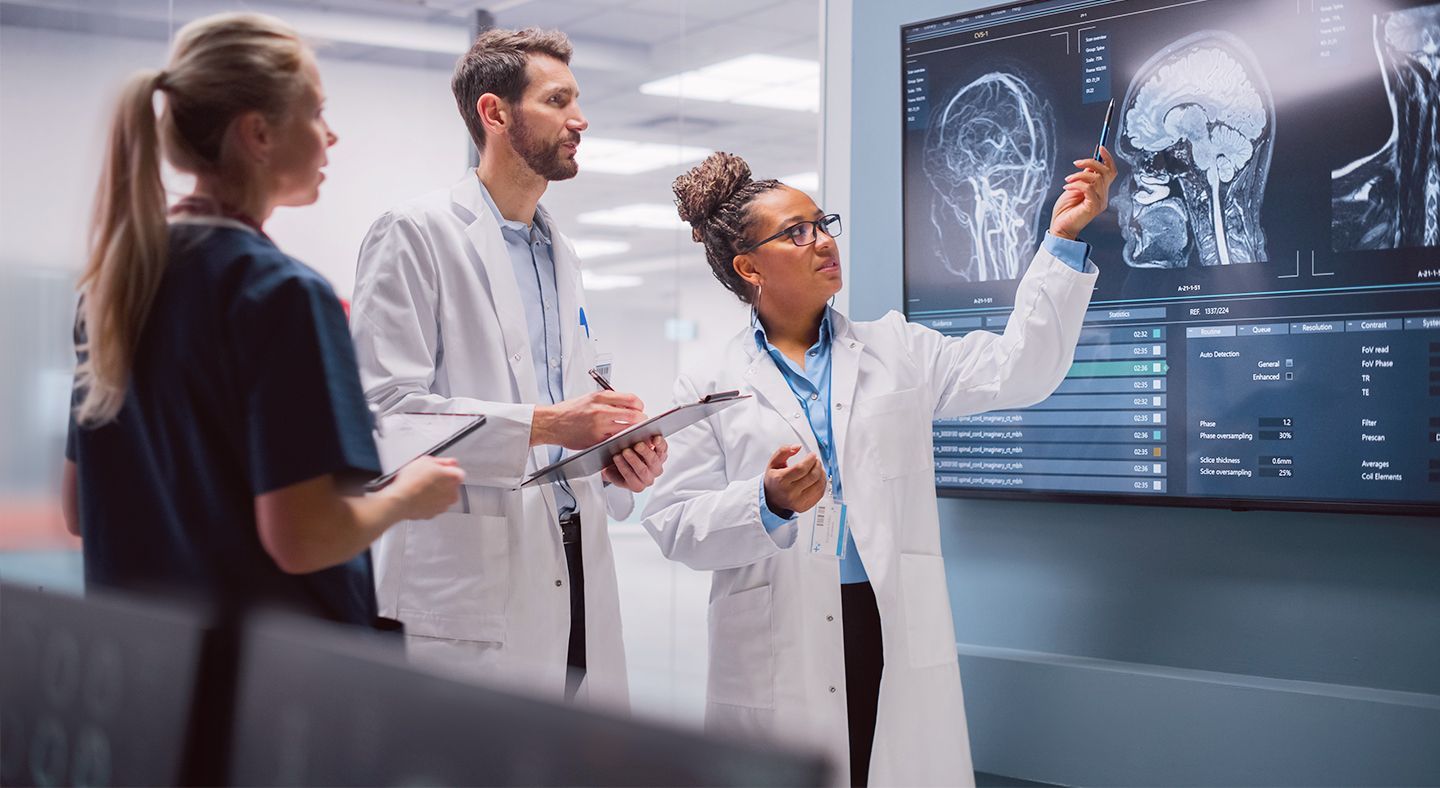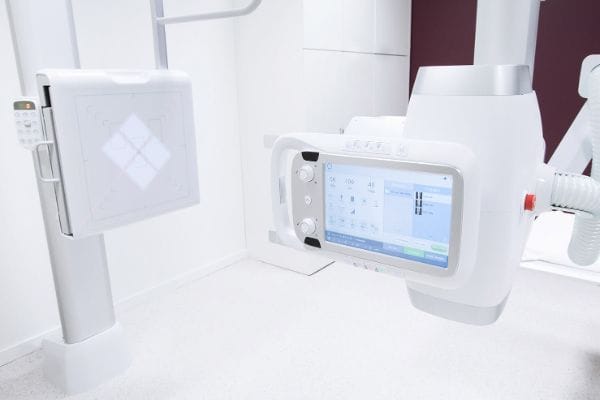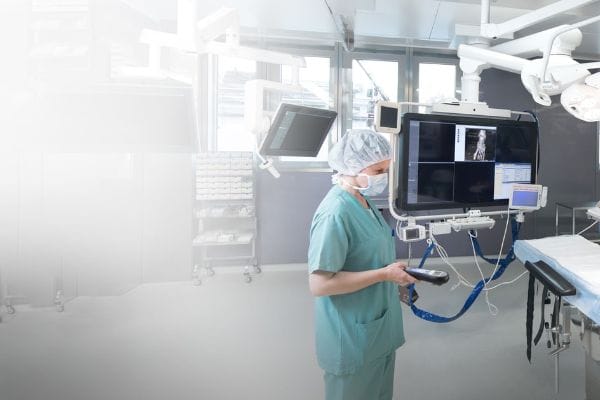 INTELLIGENT USE OF CUTTING-EDGE MEDICAL TECHNOLOGY AND HOSPITAL IT
Position your health service successfully against the competition with modern technology and counter cost pressure with clever savings.
INTELLIGENT USE OF CUTTING-EDGE MEDICAL TECHNOLOGY AND HOSPITAL IT
Position your health service successfully against the competition with modern technology and counter cost pressure with clever savings.
What is artificial intelligence in healthcare?
Machine learning and AI in healthcare can provide data-driven support to medical professionals. Using algorithms and data, these technologies can identify patterns and deliver automated insights that help with common applications such as health monitoring, managing medical records, treatment design and even digital consultations.
While there are many obvious benefits of AI in healthcare, some debate the pros and cons of the financial and clinical implications of relying on algorithms and data-driven technology for patient care. To explore both sides of the debate, we’ve put together the current advantages and disadvantages of artificial intelligence in healthcare.
Advantages Of Ai In Healthcare
Ability to analyse data and improve diagnosis
AI-equipped technology can analyse data much faster than any human, including clinical studies, medical records and genetic information that can help medical professionals come to a diagnosis.
Carry out administrative and routine tasks
AI can automate many routine tasks, such as maintaining records, data entry and scan analysis. With less time being spent on administrative tasks, medical professionals can place more focus on patient care.
Health monitoring and digital consultations
From wearable health tech, such as the Apple Watch and FitBit, to digital consultations via your smartphone, AI can allow people to monitor their own health, while also providing healthcare professionals with essential data.
Disadvantages Of Artificial Intelligence In Healthcare
Training complications
AI technology needs to be extensively trained with curated data sets in order to perform as expected. However, due to privacy concerns, it can be difficult to access some of the data necessary to provide AI learning with the breadth and depth of information it needs.
Change can be difficult
In any industry, change can prove challenging. Since the healthcare industry is crucial for patient care, the medical community need proof that AI will be effective, as well as a plan to show investors it is going to be worth the cost. Everyone working alongside AI technology will need to have an understanding of this technology and how it can assist them with day-to-day tasks.
How Can Ai Be Used In Healthcare?
There are many applications of AI in healthcare. Some are not widely used as yet, but as the industry is continuing to embrace technological advancements, we will see AI integrated into healthcare even more in the coming years. Some examples include:
Managing medical records
AI can help collect, store and analyse important data, including medical records. This can help medical professionals access the data they need faster and therefore work more effectively.
Treatment plans
By analysing a patient’s records, clinical research and expertise, AI can help to determine the best course of treatment for a patient, and assist medical professionals in finding a tailored and targeted treatment.
Drug creation
AI can contribute to the creation of new drugs by analysing data and existing medicines. Developing new drugs is costly and often takes years. However, AI can help to cut costs in this area of medicine and speed up drug creation.
What Role Will Artificial Intelligence Play In The Future Of Medicine?
AI allows healthcare professionals to better understand the patterns and needs of their patients through in-depth data analysis.
As technology continues to develop and medical applications are discovered, doctors and nurses will be able to provide better guidance, support and feedback.
In the future, AI in healthcare has the potential to read images and scans, make clinical diagnoses, create treatment plans, and improve the delivery of care to patients.
Developed AI technology within medicine could reduce preventable human error by recognising anomalies, assist surgeons by understanding the ‘grammar of surgery’, and predict readmissions by developing an algorithm that identifies the probability that a patient will return.
FIND OUT MORE
 INTELLIGENT USE OF CUTTING-EDGE MEDICAL TECHNOLOGY AND HOSPITAL IT
Position your health service successfully against the competition with modern technology and counter cost pressure with clever savings.
INTELLIGENT USE OF CUTTING-EDGE MEDICAL TECHNOLOGY AND HOSPITAL IT
Position your health service successfully against the competition with modern technology and counter cost pressure with clever savings.

HEALTHCARE TECHNOLOGY

Providing you with more options and better value
